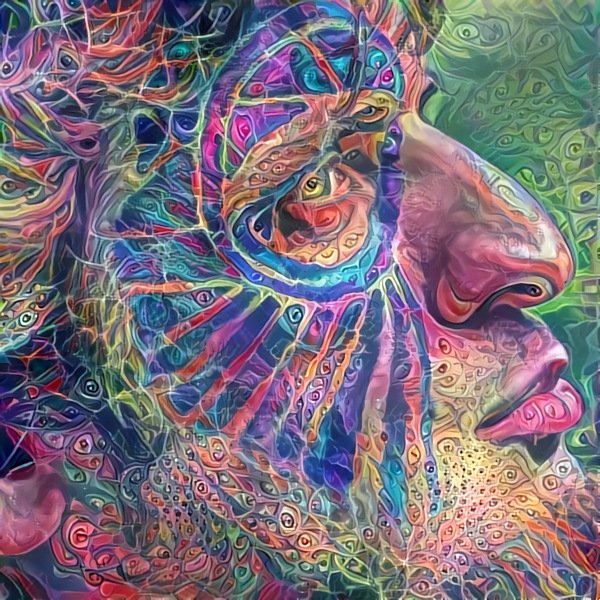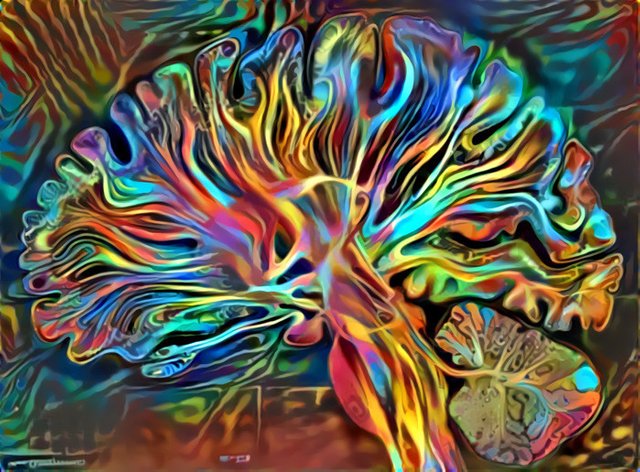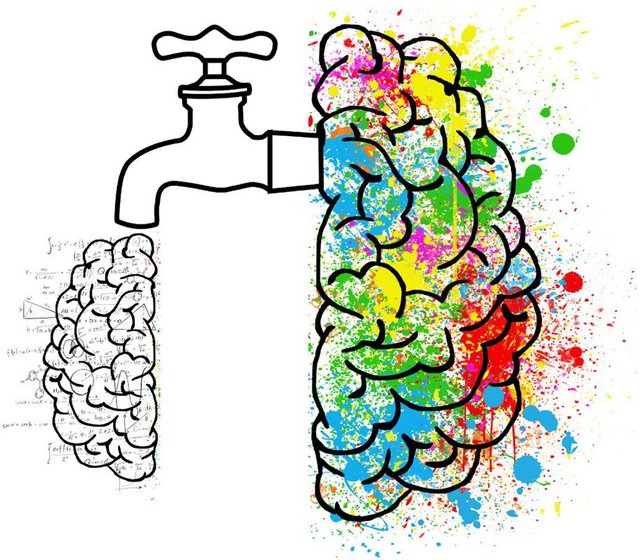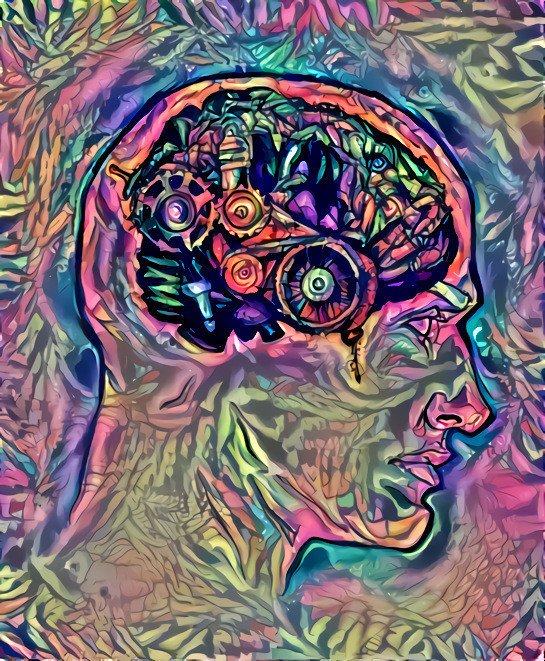My introduction to psychedelic research!
Hey everyone,

I study Cognitive Neuropsychology in Amsterdam and aspiring to become a psychedelic researcher . My interests include Artificial Intelligence, Neurophilosophy and Predictive Processing. I'm here because I want to unload topics that keep me busy and to write about topics related to consciousness and neuroscience. I believe that psychedelic drugs can be used as powerful scientific tools that will provide unique insights as to how our brain produces consciousness. I am also an organizing member of the Amsterdam Psychedelic Research Assosciation (APRA), a group that seeks to promote the research of psychedelics to a wider audience. I am also in the process of organizing a field study that will test the cognitive effects of microdosing. Here is a quick introduction on the shape of things to come:
Psychedelic Science: Revisiting the Doors of Perception
“There are things known, and things unknown, and in between are the doors of perception.
If the doors of perception were cleansed everything would appear to man as it is, infinite.
For man has closed himself up, till he sees all things thro' narrow chinks of his cavern.”
-Aldous Huxley, The Doors of Perception
When Aldous Huxley first took mescaline in 1954, he described his experience of ego-dissolution as a diminishing of the barriers between the known and the unknown. He obtained an obscure sense of knowledge about the infinite that lay beyond what he called the doors of perception. He proclaimed that psychedelics have a unique capability of exposing the narrowness of our internal representations to the vast and infinite beauty of the external world. Since Huxley wrote these epistemic descriptions, the psychedelic state has also become formalized within the paradigms of modern neuroscience, predictive processing amongst others. Neuroimaging studies show that psychedelics cause widespread changes the brains communication patterns . Most interesting is that fact that psychedelics increase the communication between different brain regions but decrease the communication within them [1]. This induces a wider and more diffuse set of conscious mental states [2]. Researchers (including me) are now interested to know whether these changes may result in enhanced creativity or present a therapeutic window to treat addiction, obsessive compulsive disorders and depression!

Predictive Processing: Perception is in the eyes of the beholder!
Predictive Processing has become a prominent theory in the field of cognitive neuroscience due to its large explanatory power that may potentially unify ideas that have divided scientists for many years. This paradigm views the brain as a prediction machine that constantly tries to explain away incoming bottom-up signals with top-down predictions in a manner that continuously tries to minimize the resulting prediction error. As Jean Piaget once put it, what we see changes what we know and what we know changes what we see. Or in other words, we are constantly conforming reality to what we have already experienced in the past. This theory has tremendous implications, especially if we pair it with psychedelics. If psychedelics drastically breaks down constraints on our prior knowledge , we may rediscover the world with new eyes and form new relationships with our environment!

Adapted from (Swanson, 2018) [3]
Googles DeepDream: Hallucination Machines
Most people are familiar with the trippy pictures generated by Google’s deep convolutional neural network, otherwise known asDeepDream[4]. But what are these images actually conveying? Is the network dreaming or tripping on acid? Let us take a step back. Google constructed this network to perform image classification; the network is fed thousands of pictures of dogs and houses in order to sort these two categories apart. This a form of supervised learning, which means that researchers must tell the network whenever it is doing somthing right or wrong. The network gradually adjusts its behavior based on this feedback and learns what we want it to do. Over time it can separate the pictures on account of their ‘houseness’ or ‘dogness’ better than humans. The network can be run backwards, hich produces some very trippy results.
Is this neural network actually doing somthing that our brains would do (on psychedelics)? This seems intuitively doubtful. After all, it learns completely differently than we do! We don’t require anybody lurking behind us, constantly telling us whether what we do is right or wrong. Even if we did learn like that, neural networks can update themselves on a global scale, whereas our brains have far more limited oversight which part of itself needs updating. Amazingly, scientists have found that the network activity does infact show a remarkable functional resemblance to what our brains are doing. This means that the information structures within our brains are organized in a manner that reflects the information processing properties of the environment. These networks can provide a proof of concept, regarding the theories I mentioned earlier.
 ]
]
Let me know if any of these topics have sparked your interest and tell me if you would like to read more about such topics in the future. Images were generated with deepdreamgenerator .
Best regards,
Yours truely, an aspiring Psyentist
Sources:
[1]: Carhart-Harris, R. L., Leech, R., Hellyer, P. J., Shanahan, M., Feilding, A., Tagliazucchi, E., ... & Nutt, D. (2014). The entropic brain: a theory of conscious states informed by neuroimaging research with psychedelic drugs. Frontiers in human neuroscience, 8, 20.
Entropic Brain Theory
[2]: Petri, G., Expert, P., Turkheimer, F., Carhart-Harris, R., Nutt, D., Hellyer, P. J., & Vaccarino, F. (2014). Homological scaffolds of brain functional networks. Journal of The Royal Society Interface, 11(101), 20140873.
Psilocybin & the Brain
[3]: Swanson, L. R. (2018). Unifying Theories of Psychedelic Drug Effects. Frontiers in Pharmacology, 9(172). doi:10.3389/fphar.2018.00172
Unifying Theories of Psychedelic Drug Effects
[4]: Mordvintsev, A., Olah, C., & Tyka, M. (2015). Inceptionism: Going deeper into neural networks. Google Research Blog. Retrieved June, 20(14), 5.
Inceptionsim
Welcome :) Great you already found out about @steemstem, it will be of big help for your #science posts ;) Resteeming your for some publicity! Greets
Welcome to Steemit @psyentist!
I wish you much success and hope you find Steemit to be as rewarding and informative as I have.
Here are some links you might find useful.
Your stats on SteemNow
Your stats on SteemWorld
Your stats on SteemD
How to use Minnow Booster
How does Steemit actually work?
Introbot is hosted and managed with donations from @byColeman to help make your journey on Steemit truly rewarding. Your feedback is always welcome so that we may improve this welcome message.
Oh yea, I have upvoted you and followed you. Many blessings from @introbot & @bycoleman
Hey @psyentist,
it is damn good to have you here with us. You will find quite a few fellow entheogenics ethusiasts here on steemit and I'm sure the steemSTEM community will take interest in your contributions. I am looking forward to reading your articles :)
The Doors of Perception had a big impact on me and I have re-read it 3 times since. By the way, do you know that Google has offered a Machine learning crash course to the public very recently?
Steem on!
Thanks, that course looks worthwhile!
Wow, great to see a psychedelic researcher here on Steemit! Me myself covered DMT and psilosibin research, so I am more than happy to follow your work :)
Great to have you here! Really looking forward to the conversations we can have, as this is an area that I'd love to know more about.
Thanks for the encouragement!
I thoroughly enjoyed this read. Welcome to steemit :)
I'll keep an eye out for your future posts. Psychedelics and their research fascinate me.
Thanks, between kickstarting my own research I want to write thourogh informative articles. I'll try my best to deliver!
I enjoyed reading your article. I do not have any knowledge of Cognitive Neuropsychology, but as a physicist I was always fascinated by concept of consciousness (I read some articles about some quantum-mechanical attempts when it comes to explaining of consciousness, and I had a brief discussion with Sir Roger Penrose about it.
I was very fascinated with this information: "Most interesting is that fact that psychedelics increase the communication between different brain regions but decrease the communication within them [1]. This induces a wider and more diffuse set of conscious mental states [2]. "
When you say "psychedelics", on which psychedelics do you mean exactly?
Hello,
Psychedelics are indeed a bit vague as a category, as psychedelic substances are often categorized along phenomenological critera. So some people may even include ketamine and MDMA as psychedelics. Most psychedelics however, seem to enact the seretonergic pathway, namely the 5-HT2A receptor amongst others. These are an evolutionarily new group of receptors and they seem to fullfill modulatory functions.
When researcher say 'psychedelics' this commonly refers to mescaline, 2-CB, LSD, Psilocybin, Aya huasca and DMT, because these all enact the 5-HT2A receptor and because these are the most well studied substances up to date. On the darkweb you will probably find many other psychedelic substances but these are considered too risky for human testing. The classic psychedelics have been around for quite a while, so they aren't considered that dangerous.
I would like to write a more extensive blog post about the network properties of the brain on psychedelics and explain how the effects can be broken down into physical terms such as 'entropy'. I would add that these are still only adressing the soft-problem of consciousness and not the hard-problem. Quantum explanations aren't being actively pursued in my field, these usually resonate more with philosophers who argue for panpsychism.
Thanks for your feedback!
Welcome to you!
Oh, great! I just looked you up to find your blog posts and now I read this! Very very interesting.
I will take my time and read it with joy and in silence.
What I want to ask before that: you certainly are familiar with Dr. Rick Strassman?
And knowing Aldous Huxley's work you also might have been led to Alan Watts. I am really delighted to meet you and what your field provides.
I will come back later on, for sure, and leave you also what I think about this particular article. :-)
Yes of course, it's hard not know Strassman in this field and yes I love listening to Alan Watts before falling asleep. He has very southing thoughts. Thanks!
LOL, I do that, too. I guess I am already in the third round or so, emptied youtube, so to speak.
I would like to add even though psychedelics might help to ease depression it probably will not cure it. I, of course, don't know. My assumption is that depressed people need other people and a lot more to overcome a depression. But I am really interested in the outcomes of research and what it might do good.
During a normal working week, I talk regularly to clients with either diagnosed depression or I can see that they are depressed. Just today I talked to an elderly woman and as it was not so busy as usual I had time to have a relaxed talk with her. She left way more cheered than she came. It was so good to support her and I learned another story as well.
Hey,
This could be a topic in its own right. No I don't think psychedelics will 'cure' depression, which is why I tend to say treat it instead :D . The interesting thing with psychedelics is that the positive clinical effects are sometimes only present when the patients actively strive towards positive clinical goals. Our current medical standards aren't particularly compatible with such notions because we generally expect our medicines to work regardless of whether people want it or not. So I think the general question is, can mental problems be cured in general? To what extent is a mental 'problem' a part of ones very personality? Is there a necessary amount of suffering?
These are all issues on account of which I wouldn't proclaim mental cures in the same sense I would call somthing a cure for cancer. But there are people who are resistent to all other forms of treatment and for these individuals I think psychedelics would bring the greatest benefit. So I agree with you, I wouldn't want to promote any miracle cures, but I do believe in opening therapeutic windows :D .
This post has received a 0.15 % upvote from @speedvoter thanks to: @chriddi.
Hey and welcome here, fellow researcher!
Yes, I am very interested in reading more about your research!
I saw you already included the #steemstem tag, which is nice. You should continue to do so when writing science, and also join our discord chat some time!
Also, there is this great guide that I usually recommend to new steemians, that really covers a lot of the usual questions around our platform.
Upvoted/followed, and cya around!
Nice, I'd love to engage with fellow scientists :D